
Wilmington: The Coastal Gem of North Carolina
Wilmington, nestled along the Cape Fear River, boasts a rich history dating back to colonial times. The city offers a charming blend of historic architecture, vibrant cultural scenes, and scenic waterfront views. Stroll through the cobblestone streets of the Historic District, where beautifully preserved antebellum homes and centuries-old churches tell stories of the past. Nature enthusiasts will find plenty to love here. The nearby Wrightsville Beach is perfect for sunbathing, surfing, and sailing. For a quieter experience, visit Carolina Beach State Park, where you can hike trails, fish, or simply enjoy the serene natural surroundings. Don't miss the picturesque Riverwalk, which offers stunning views of the river and is lined with delightful shops and eateries. Wilmington is also a hub for arts and entertainment. The city hosts numerous festivals throughout the year, including the North Carolina Azalea Festival and the Cucalorus Film Festival. Visit the Cameron Art Museum for contemporary exhibits or catch a live performance at Thalian Hall, one of the oldest theatres in the United States. Whether you're a history buff, a beach lover, or an arts enthusiast, Wilmington has something for everyone.
Local tips in Wilmington Area
- Visit during the spring for the North Carolina Azalea Festival.
- Explore the Riverwalk in the evening for the best sunset views.
- Consider renting a bike to easily navigate through the Historic District.
- Try the local seafood at one of the many waterfront restaurants.
- Take a guided tour to learn about the city's history and hidden gems.
Wilmington: The Coastal Gem of North Carolina
Wilmington, nestled along the Cape Fear River, boasts a rich history dating back to colonial times. The city offers a charming blend of historic architecture, vibrant cultural scenes, and scenic waterfront views. Stroll through the cobblestone streets of the Historic District, where beautifully preserved antebellum homes and centuries-old churches tell stories of the past. Nature enthusiasts will find plenty to love here. The nearby Wrightsville Beach is perfect for sunbathing, surfing, and sailing. For a quieter experience, visit Carolina Beach State Park, where you can hike trails, fish, or simply enjoy the serene natural surroundings. Don't miss the picturesque Riverwalk, which offers stunning views of the river and is lined with delightful shops and eateries. Wilmington is also a hub for arts and entertainment. The city hosts numerous festivals throughout the year, including the North Carolina Azalea Festival and the Cucalorus Film Festival. Visit the Cameron Art Museum for contemporary exhibits or catch a live performance at Thalian Hall, one of the oldest theatres in the United States. Whether you're a history buff, a beach lover, or an arts enthusiast, Wilmington has something for everyone.
When is the best time to go to Wilmington Area?
Iconic landmarks you can’t miss
Wilmington Riverwalk
Experience the vibrant beauty of Wilmington Riverwalk, a scenic waterfront destination filled with local shops, dining, and stunning river views.
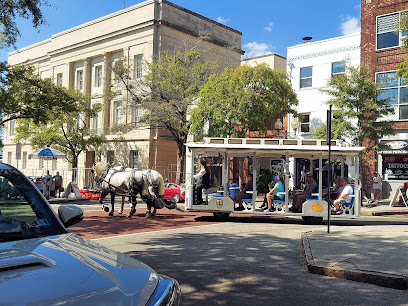
Bellamy Mansion Museum
Explore the Bellamy Mansion Museum in Wilmington, NC, a historical gem showcasing stunning architecture and rich local history, perfect for every traveler.
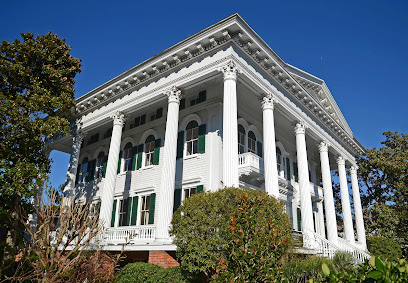
Wilmington Railroad Museum
Discover the enchanting world of railroads at Wilmington Railroad Museum, a captivating tourist attraction in North Carolina showcasing history and innovation.
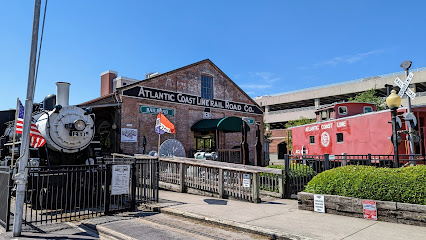
Cameron Art Museum
Explore the Cameron Art Museum in Wilmington, NC, where art, culture, and community come together in a serene and inspiring setting.
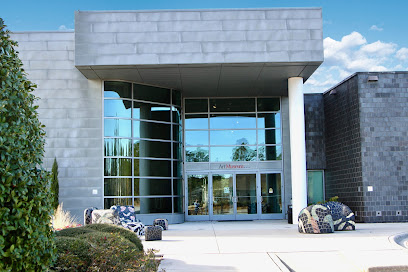
Burgwin-Wright House and Gardens
Explore the Burgwin-Wright House and Gardens, a historical delight in Wilmington, NC, featuring charming architecture and beautiful gardens.
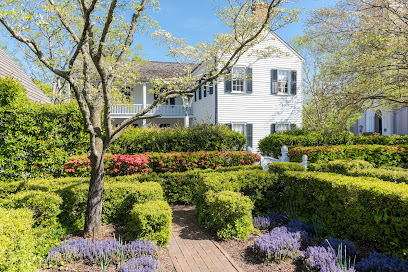
Latimer House
Explore the historic Latimer House in Wilmington, NC, where rich heritage, stunning architecture, and engaging exhibits await every visitor.
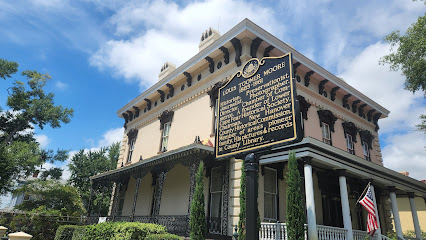
Unmissable attractions to see
Oak Island Lighthouse
Experience the Oak Island Lighthouse, a historic maritime landmark offering breathtaking views and a glimpse into North Carolina's coastal heritage.
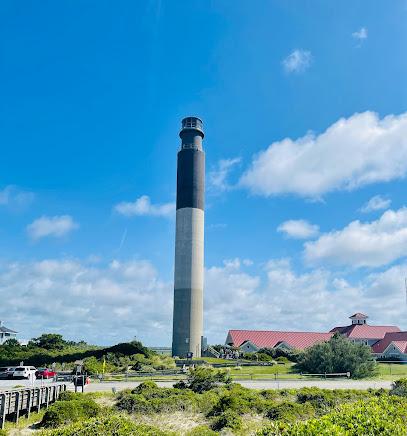
Wilson Center at Cape Fear Community College
Discover the vibrant world of performing arts at the Wilson Center in Wilmington, NC, where diverse events bring culture to life in an inviting setting.

Blue Post Billiards
Experience the vibrant atmosphere of Blue Post Billiards in Wilmington, NC, where great drinks, friendly competition, and fun await every visitor.
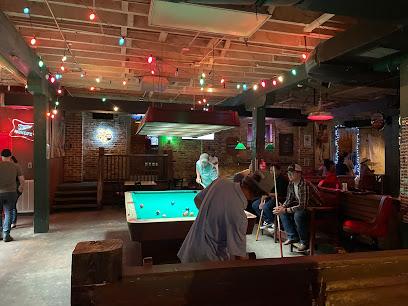
Stanley Rehder Carnivorous Plant Garden at Piney Ridge Nature Preserve - Wilmington
Explore the captivating Stanley Rehder Carnivorous Plant Garden, a unique gem in Wilmington, NC, showcasing diverse and fascinating plant species in a serene nature preserve.
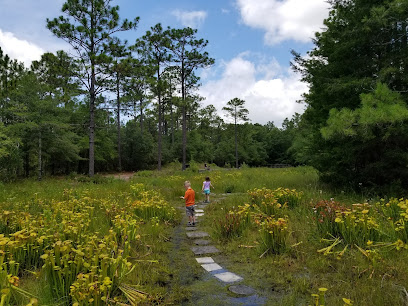
Masonboro Island Reserve
Experience the serene beauty and rich biodiversity of Masonboro Island Reserve, a must-visit nature preserve on the North Carolina coast.
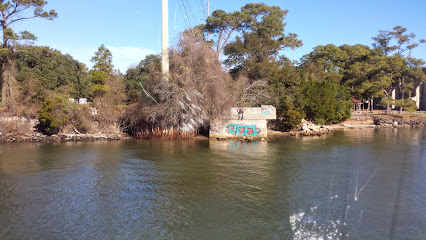
Basilica of Saint Mary
Explore the Basilica of Saint Mary, a stunning Gothic church in Wilmington, NC, featuring breathtaking stained glass and a rich cultural heritage.
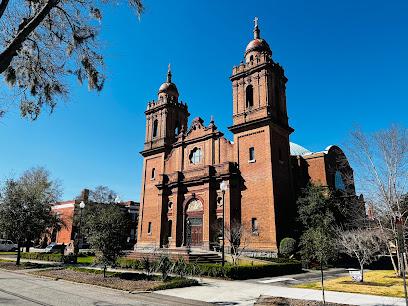
Cape Fearless Extreme
Experience the thrill of high ropes courses and adventure sports at Cape Fearless Extreme in Riegelwood, North Carolina—an ultimate destination for adrenaline seekers.
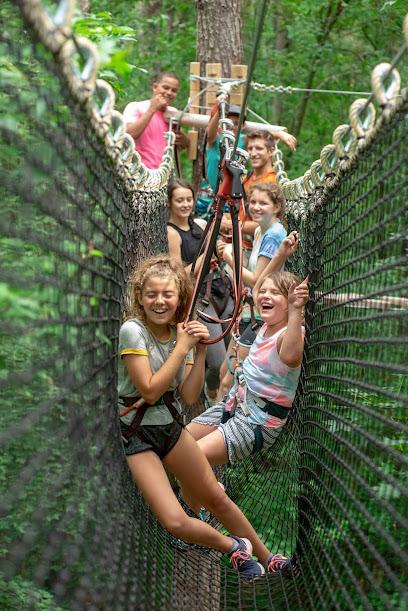
Bijou Park
Discover the serene beauty of Bijou Park, Wilmington's hidden gem, where nature meets culture along the picturesque Riverfront.
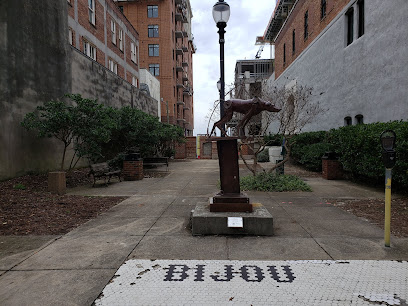
Bald Head Island
Experience the tranquil beauty of Bald Head Island, a hidden gem in North Carolina known for its stunning beaches and rich historical charm.

Essential places to dine
Indochine Restaurant
Discover authentic Thai and Vietnamese flavors at Indochine Restaurant in Wilmington - a true culinary adventure awaits!
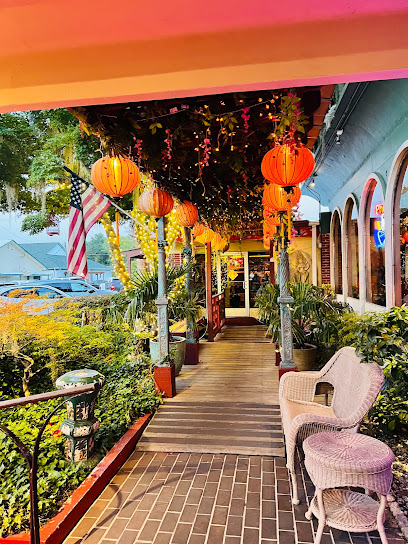
The Copper Penny
Discover The Copper Penny: where vibrant American cuisine meets a lively bar atmosphere in the heart of Wilmington.
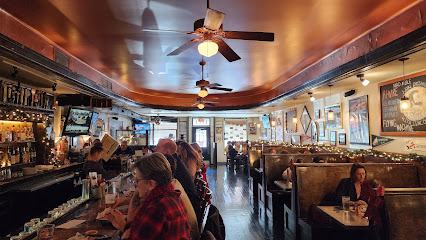
Cape Fear Seafood Company
Discover fresh coastal flavors at Cape Fear Seafood Company - Wilmington's premier seafood destination for an unforgettable dining experience.
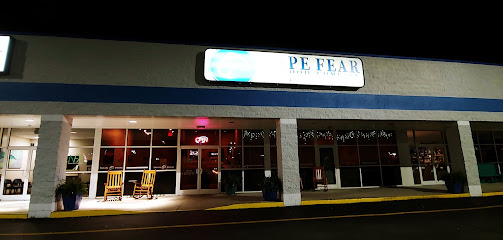
The Fork 'N' Cork
Discover delicious American cuisine at The Fork 'N' Cork, a top-rated grill on Wilmington's scenic Riverfront.
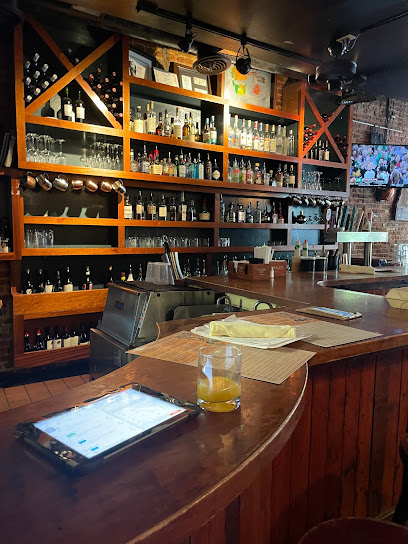
Elijah's
Experience exquisite seafood dining at Elijah's in Wilmington, NC—where fresh catches meet fine dining along the scenic Riverfront.
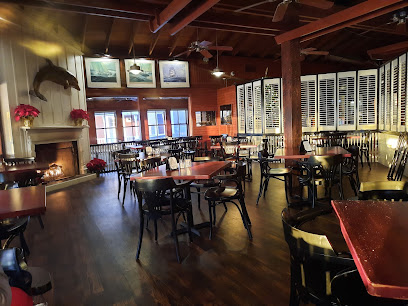
Rucker Johns Restaurant
Discover the flavors of America at Rucker Johns Restaurant in Wilmington - where great food meets friendly service.
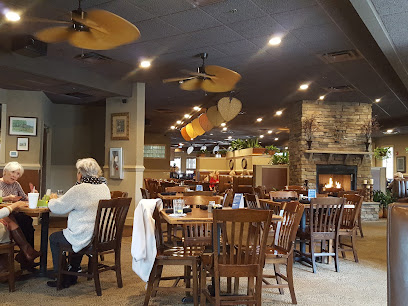
Pilot House Restaurant
Experience the best of Wilmington's seafood dining at Pilot House Restaurant on the beautiful Riverfront.
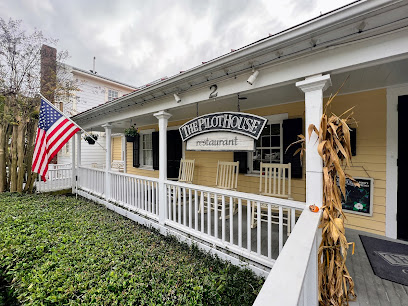
Anne Bonny's Bar and Grill
Experience flavorful dishes with scenic waterfront views at Anne Bonny's Bar and Grill in Wilmington, NC.
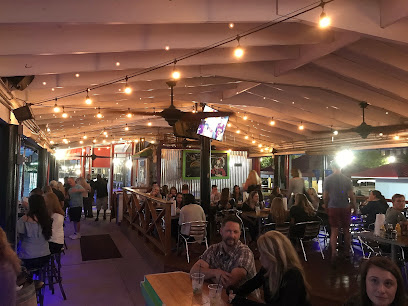
JohnnyLukes KitchenBar
Discover the best of American cuisine at JohnnyLukes KitchenBar in Wilmington – where flavor meets comfort in every dish.
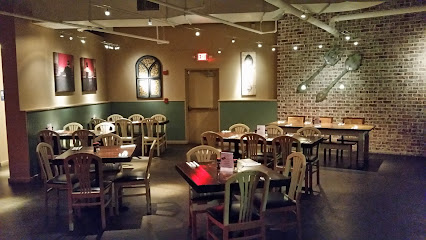
Cast Iron Kitchen
Discover the delightful taste of American cuisine at Cast Iron Kitchen in Wilmington - where every meal feels like home.
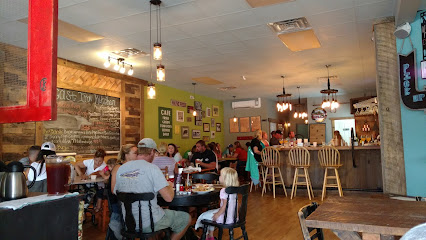
The George on the Riverwalk
Discover fresh seafood delights at The George on the Riverwalk, Wilmington's premier destination for American cuisine with stunning river views.
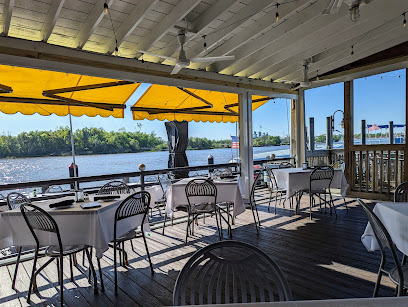
Savorez
Experience authentic Latin American flavors at Savorez in Wilmington's Historic District - where every meal is a vibrant celebration.
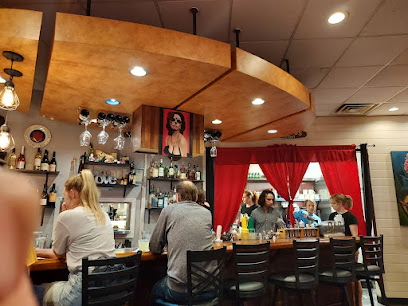
Hell's Kitchen
Discover Hell's Kitchen in Wilmington: where delicious grilled flavors meet vibrant bar culture along the scenic Riverfront.
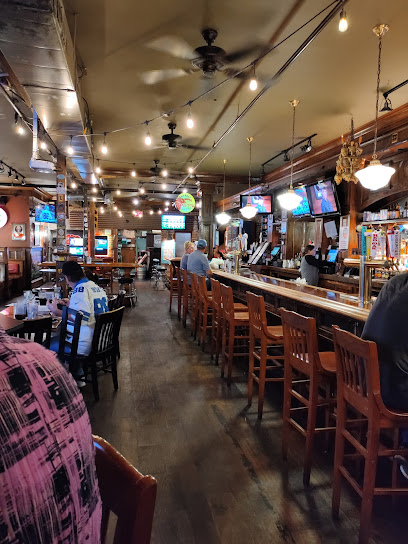
The Basics
Experience the heart of Southern hospitality at The Basics in Wilmington—where classic recipes meet local flavors.
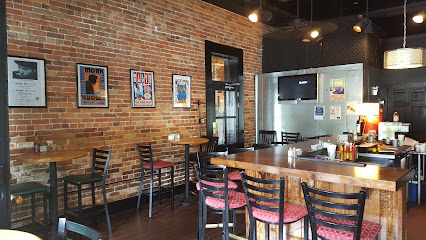
Henry's
Discover Henry's in Wilmington: Where American cuisine meets Southern charm in a cozy dining experience.
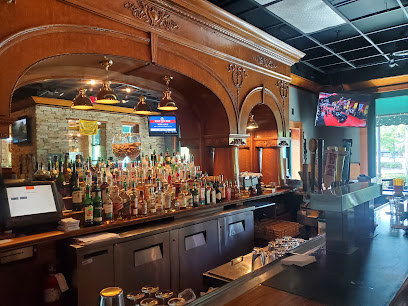
Markets, malls and hidden boutiques
The Cotton Exchange
Discover the charm of The Cotton Exchange in Wilmington, a historic shopping mall blending unique boutiques and local eateries with rich heritage.
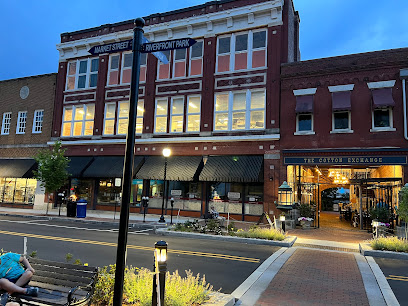
Blue Moon Gift Shops
Explore Blue Moon Gift Shops in Wilmington, NC for unique gifts, jewelry, pottery, and home goods that capture the essence of local craftsmanship.
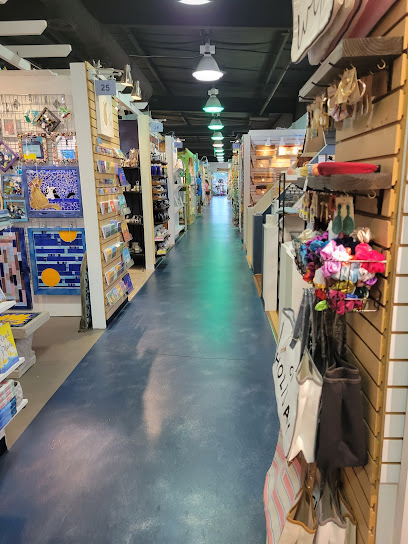
Madame Meerkat's Cabinet of Curiosities
Explore the mystical world of crystals, clothing, and unique metaphysical supplies at Madame Meerkat's Cabinet of Curiosities in Wilmington, NC.
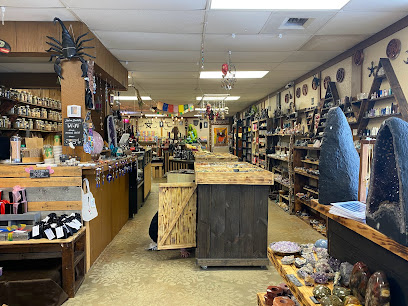
The Black Cat Shoppe
Explore The Black Cat Shoppe in Wilmington, NC - a whimsical gift shop filled with unique finds and local treasures for visitors and locals alike.
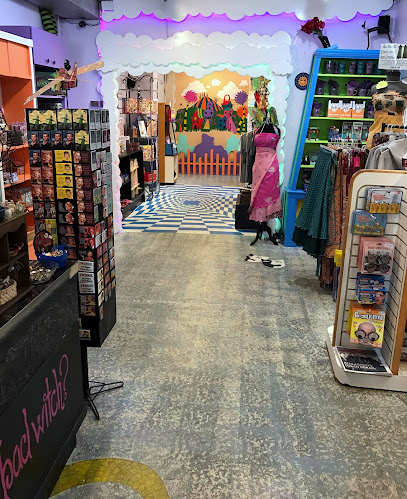
Krazy Mikez
Discover unique T-shirts and gifts that embody Wilmington's spirit at Krazy Mikez, a vibrant store along the Riverfront.
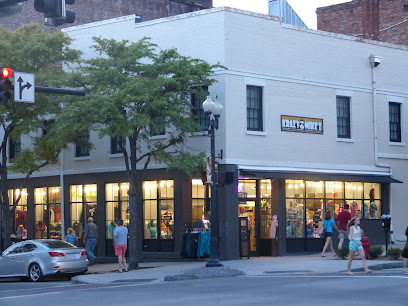
Azalea Antiques & Art
Explore Azalea Antiques & Art for a unique selection of vintage treasures and local artwork in Wilmington, NC, ideal for collectors and casual shoppers alike.
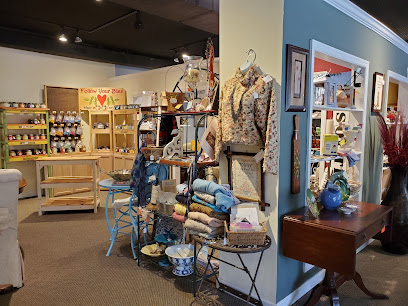
My Sister's Cottage
Explore My Sister's Cottage in Wilmington for unique women's clothing, accessories, and charming home goods that capture the spirit of local shopping.
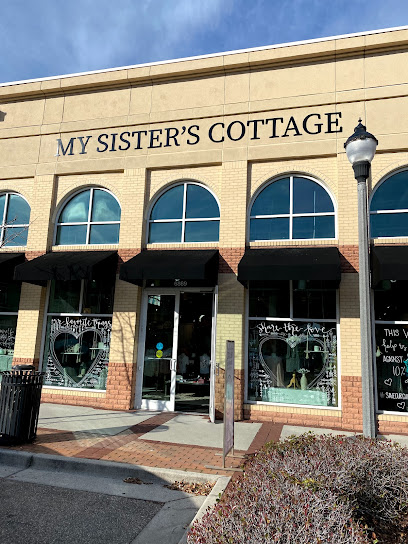
Vintage Marketplace
Explore a treasure trove of antiques and vintage items at Vintage Marketplace in Wilmington, NC, where history meets charm.
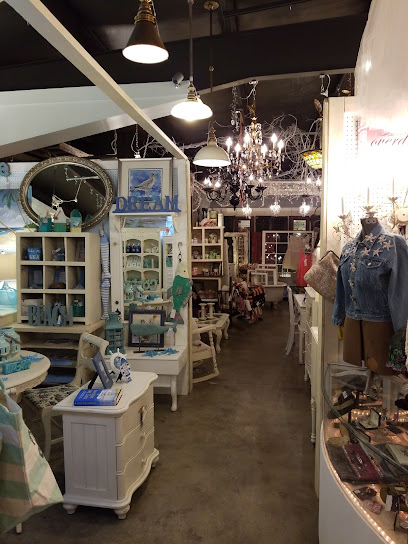
Second Wonder Vintage
Explore Second Wonder Vintage in Wilmington, NC for unique vintage clothing, stylish accessories, and one-of-a-kind treasures that define your individuality.
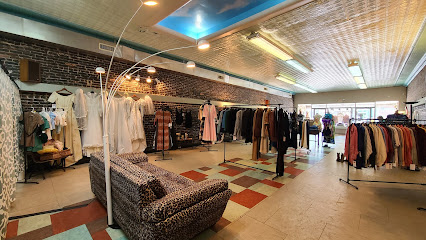
Eclipse Artisan Boutique
Explore the enchanting Eclipse Artisan Boutique in Wilmington, NC, where unique art, handcrafted gifts, and local craftsmanship come together in a vibrant atmosphere.
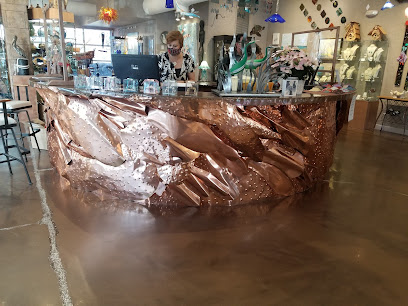
Edge of Urge
Discover Wilmington's unique charm at Edge of Urge, a boutique offering fashion, gifts, and home goods that reflect local creativity and style.
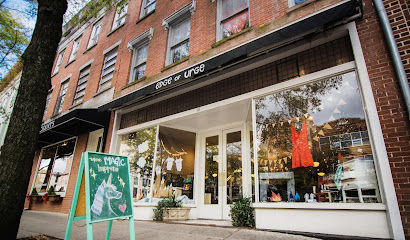
Port City Peddler
Explore Wilmington's hidden gem, Port City Peddler, for unique antiques and local crafts that tell stories of the past.
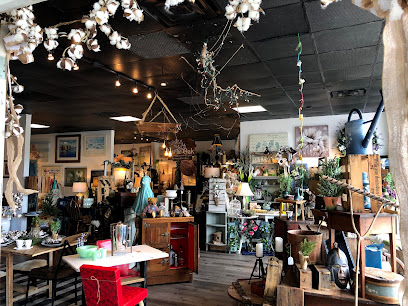
Crabby Chic
Explore an enchanting gift shop in Wilmington, NC, offering unique treasures and handcrafted items that capture the spirit of the coast.
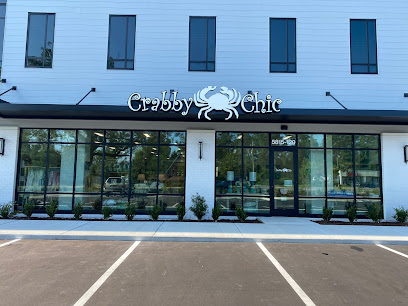
Fuzz Love
Discover unique treasures at Fuzz Love, Wilmington's charming gift shop featuring eclectic items from around the globe.
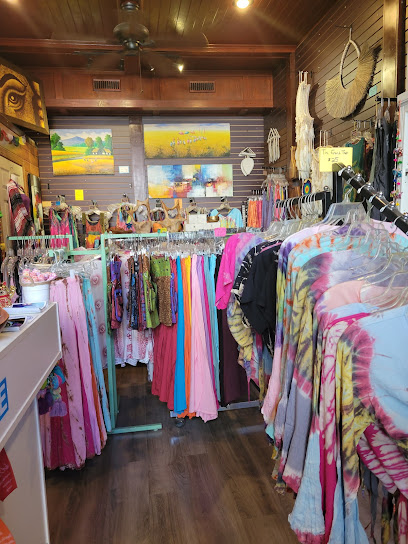
Airlie Moon
Explore Airlie Moon in Wilmington, NC, where local artistry meets unique gifts in a charming gift shop atmosphere.
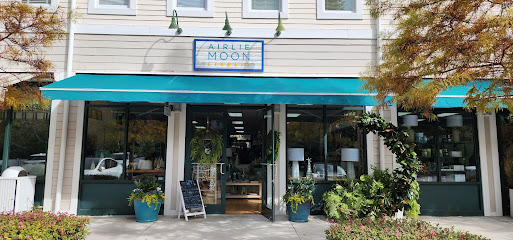
Essential bars & hidden hideouts
Carolina Ale House - Wilmington
Discover Carolina Ale House in Wilmington for a perfect blend of delicious cuisine, local brews, and a vibrant sports atmosphere.
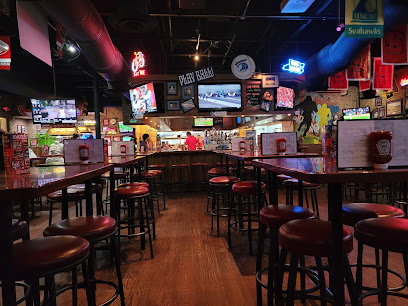
Front Street Brewery
Discover Wilmington's Front Street Brewery, where craft beer meets delicious American cuisine in a vibrant riverside setting.
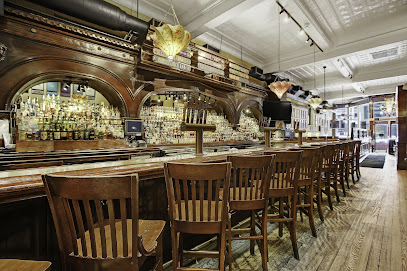
Anne Bonny's Bar and Grill
Discover the flavors of Wilmington at Anne Bonny's Bar and Grill, where stunning river views meet delightful dishes for an unforgettable dining experience.
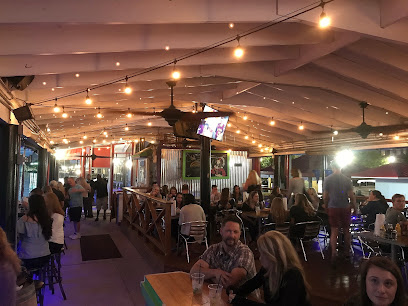
Hell's Kitchen
Experience the vibrant flavors of Hell's Kitchen in Wilmington, NC—a grill and bar offering a delightful menu and lively atmosphere.
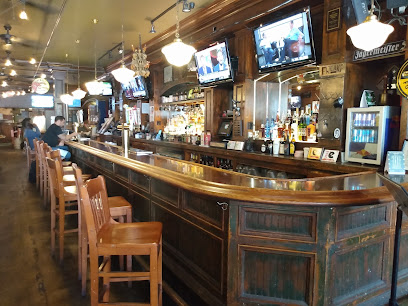
The Harp
Experience authentic Irish cuisine and vibrant live music at The Harp, Wilmington's beloved Irish pub and cultural hub.
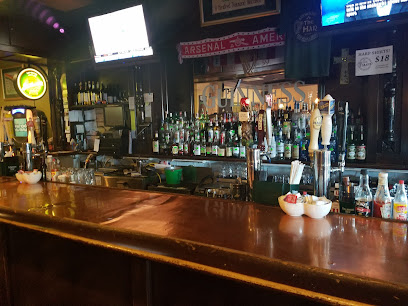
Satellite Bar and Lounge
Discover Wilmington's vibrant nightlife at Satellite Bar and Lounge, offering creative cocktails and a lively atmosphere for an unforgettable evening.
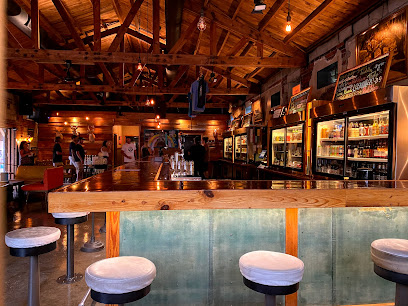
Pour Taproom Wilmington
Discover the self-serve beer paradise at Pour Taproom Wilmington, where craft brews meet a vibrant social atmosphere in the heart of the Riverfront.
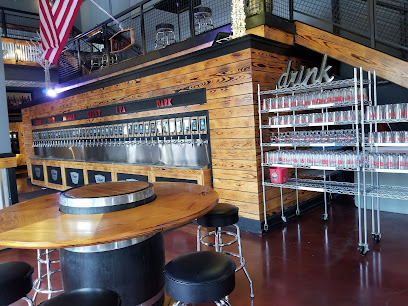
Walk-On's Sports Bistreaux - Wilmington Restaurant
Indulge in Louisiana-inspired dishes and vibrant sports culture at Walk-On's Sports Bistreaux in Wilmington, North Carolina.
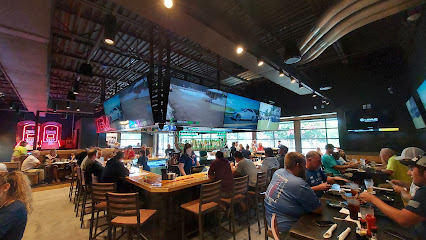
Paddy's Hollow Restaurant & Pub
Experience the heart of American cuisine at Paddy's Hollow Restaurant & Pub in Wilmington, NC, where comfort food meets a lively pub atmosphere.
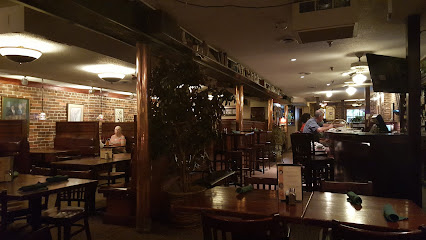
Duck & Dive Pub
Dive into Wilmington's vibrant nightlife at Duck & Dive Pub, where great drinks, live music, and a welcoming atmosphere await.
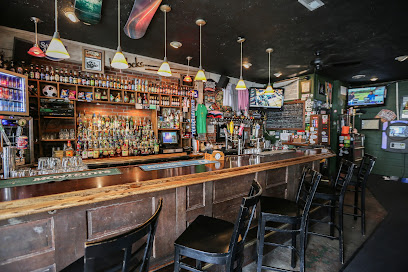
Cloud 9 Rooftop Bar
Discover Cloud 9 Rooftop Bar in Wilmington, NC – where stunning views meet delicious food and lively nightlife, creating unforgettable memories.
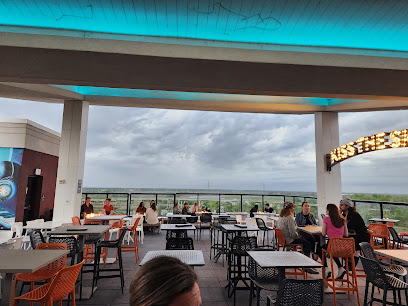
Trolley Pub Wilmington
Experience Wilmington like never before with Trolley Pub, where cycling meets local brews on a fun-filled sightseeing tour.
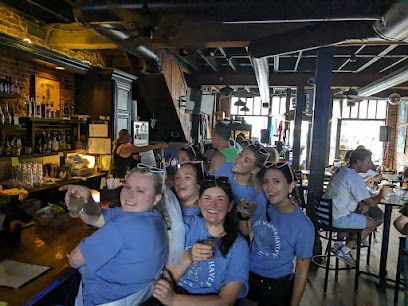
The Husk
Experience the vibrant nightlife at The Husk, a premier bar in Wilmington, NC, blending local flavors with a lively atmosphere.
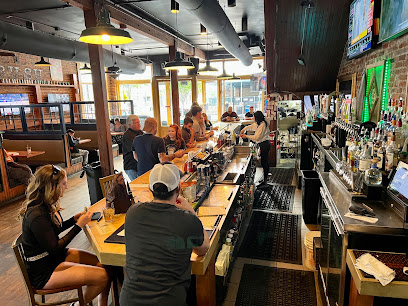
Cape Fear Spirits & Beer
Discover the vibrant flavors of Wilmington at Cape Fear Spirits & Beer, a premier bar for craft cocktails and local brews.
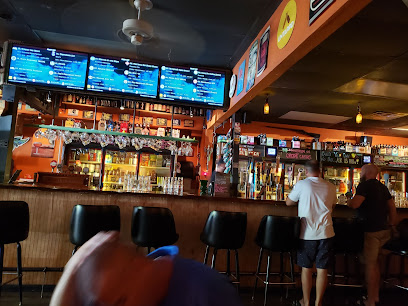
Local Phrases about Wilmington Area
-
- HelloHey y'all
[hey y'all] - GoodbyeSee y'all later
[see y'all lay-ter] - YesYup
[yup] - NoNah
[nah] - Please/You're welcomePlease/You're welcome
[please/y'all welcome] - Thank youThank ya
[thank ya] - Excuse me/SorryExcuse me/Sorry
[excuse me/sorry] - How are you?How y'all doin'?
[how y'all doin'] - Fine. And you?Fine. And you?
[fine. and y'all] - Do you speak English?Y'all speak English?
[y'all speak english] - I don't understandI don't get it
[I don't get it]
- HelloHey y'all
-
- I'd like to see the menu, pleaseCan I see the menu, please
[can I see the menu, please] - I don't eat meatI don't eat meat
[I don't eat meat] - Cheers!Cheers!
[cheers] - I would like to pay, pleaseI would like to pay, please
[I would like to pay, please]
- I'd like to see the menu, pleaseCan I see the menu, please
-
- Help!Help!
[help] - Go away!Get outta here!
[get outta here] - Call the Police!Call the cops!
[call the cops] - Call a doctor!Call a doc!
[call a doc] - I'm lostI'm lost
[I'm lost] - I'm illI'm sick
[I'm sick]
- Help!Help!
-
- I'd like to buy...I wanna buy...
[I wanna buy] - I'm just lookingI'm just lookin'
[I'm just lookin'] - How much is it?How much is this?
[how much is this] - That's too expensiveThat's too pricey
[that's too pricey] - Can you lower the price?Can ya lower the price?
[can ya lower the price]
- I'd like to buy...I wanna buy...
-
- What time is it?What time is it?
[what time is it] - It's one o'clockIt's one
[it's one] - Half past (10)Half past ten
[half past ten] - MorningMorning
[morning] - AfternoonAfternoon
[afternoon] - EveningEvening
[evening] - YesterdayYesterday
[yesterday] - TodayToday
[today] - TomorrowTomorrow
[tomorrow] - 1One
[one] - 2Two
[two] - 3Three
[three] - 4Four
[four] - 5Five
[five] - 6Six
[six] - 7Seven
[seven] - 8Eight
[eight] - 9Nine
[nine] - 10Ten
[ten]
- What time is it?What time is it?
-
- Where's a/the...?Where's the...?
[where's the] - What's the address?What's the address?
[what's the address] - Can you show me (on the map)?Can you show me (on the map)?
[can you show me (on the map)] - When's the next (bus)?When's the next bus?
[when's the next bus] - A ticket (to ....)A ticket (to ....)
[a ticket (to)]
- Where's a/the...?Where's the...?
History of Wilmington Area
-
Before European settlers arrived, the Wilmington area was inhabited by various Indigenous tribes, primarily the Cape Fear Indians. These Native Americans thrived in the rich environment, utilizing the abundant resources of the Cape Fear River for fishing, hunting, and agriculture. Their presence is still remembered through various archaeological sites and place names in the region.
-
Wilmington was officially founded in the early 1730s when European settlers, predominantly from England, began to establish the town. The city was named after Spencer Compton, the Earl of Wilmington. During the colonial era, Wilmington grew as a bustling port city, vital for the export of naval stores such as tar, pitch, and turpentine, which were essential to maintaining the British Royal Navy.
-
Wilmington played a crucial role during the American Revolution. It was a significant site for both patriot and loyalist activities. In 1775, the residents of Wilmington expressed their dissent against British rule by signing the Wilmington Resolves, a document that supported resistance against the British. The city also witnessed skirmishes and blockades, contributing to the larger struggle for American independence.
-
In the years leading up to the Civil War, Wilmington became one of the largest cities in North Carolina, thriving on its port and trade. During the Civil War, it served as a crucial Confederate stronghold due to its strategic port and the Wilmington and Weldon Railroad, often referred to as the 'Lifeline of the Confederacy.' The Battle of Fort Fisher in 1865 was a pivotal moment, leading to the fall of Wilmington and cutting off a vital supply route for the Confederate army.
-
Following the Civil War, Wilmington experienced significant changes during the Reconstruction era. However, one of the darkest chapters in its history occurred in 1898 with the Wilmington Insurrection. It was a violent coup d'etat by white supremacists who overthrew the legitimately elected biracial local government. This event led to widespread racial violence, the loss of African American lives, and the suppression of Black political power, leaving a lasting impact on the city’s social fabric.
-
The 20th century saw Wilmington transform into a modern city while grappling with its complex history. The establishment of the North Carolina Shipbuilding Company during World War II marked an industrial boom, with the shipyard producing vessels crucial to the war effort. Post-war, Wilmington diversified its economy, becoming a center for education, commerce, and culture. The city also saw the rise of the film industry, earning the nickname 'Hollywood East' due to the many productions shot in and around the area.
-
Today, Wilmington blends its rich historical legacy with a vibrant cultural scene. The city's historic downtown district, with its well-preserved architecture and cobblestone streets, attracts visitors and locals alike. Institutions like the Cape Fear Museum and the Bellamy Mansion Museum offer deep dives into the region's past, while annual events such as the North Carolina Azalea Festival celebrate its cultural heritage. Wilmington’s revitalized Riverwalk, bustling arts scene, and thriving university contribute to its reputation as a dynamic and engaging destination.
Wilmington Area Essentials
-
Wilmington, North Carolina, is accessible via Wilmington International Airport (ILM), which has regular flights from major U.S. cities. For those driving, Wilmington is well-connected by highways I-40 and U.S. Route 17. Bus services like Greyhound also serve the area, providing an alternative mode of transportation.
-
Wilmington offers various transportation options including taxis, ride-sharing services like Uber and Lyft, and a reliable public bus system operated by Wave Transit. Renting a car is a convenient way to explore the broader Wilmington area and nearby beaches. Biking is also popular, especially in the historic downtown and along the Riverwalk.
-
The official currency is the U.S. Dollar (USD). Credit and debit cards are widely accepted in most establishments. ATMs are plentiful, and mobile payment options like Apple Pay and Google Wallet are increasingly common. However, it is advisable to carry some cash for small purchases or in case you visit places that do not accept cards.
-
Wilmington is generally a safe city for tourists, but it's always wise to exercise caution. Areas like the Northside neighborhood have higher crime rates and are best avoided after dark. Always keep an eye on your belongings in crowded areas, especially during events and festivals.
-
In case of emergency, dial 911 for immediate assistance. Wilmington has several hospitals, including New Hanover Regional Medical Center, which offers comprehensive medical services. Pharmacies are readily available for minor health needs. It's advisable to have travel insurance that covers medical emergencies.
-
Fashion: Do dress casually but neatly; beachwear is acceptable at the beach but not in the city. Religion: Do respect religious sites; many churches welcome visitors but expect respectful behavior. Public Transport: Do be courteous and give up your seat to the elderly or disabled. Greetings: Do greet people with a friendly 'hello' or 'good morning'; Southern hospitality is prevalent. Eating & Drinking: Do try local seafood and Southern cuisine; tipping 15-20% in restaurants is customary. Don't litter, as Wilmington prides itself on its clean environment.
-
To experience Wilmington like a local, visit the Riverfront Farmers' Market on weekends for fresh produce and local crafts. Take a stroll along the Wilmington Riverwalk and enjoy views of the Cape Fear River. For a unique experience, explore the historic district's vibrant arts scene, featuring galleries, theaters, and live music. Don't miss the chance to visit nearby Wrightsville Beach for a day of sun, sand, and surf.
Nearby Cities to Wilmington Area
-
Things To Do in New Bern
-
Things To Do in Fayetteville
-
Things To Do in Raleigh
-
Things To Do in Chapel Hill
-
Things To Do in Mount Pleasant
-
Things To Do in North Charleston
-
Things To Do in Summerville
-
Things To Do in Greensboro
-
Things To Do in Charlotte
-
Things To Do in Fort Mill
-
Things To Do in Rock Hill
-
Things To Do in Winston-Salem
-
Things To Do in Suffolk
-
Things To Do in Mooresville
-
Things To Do in Chesapeake













